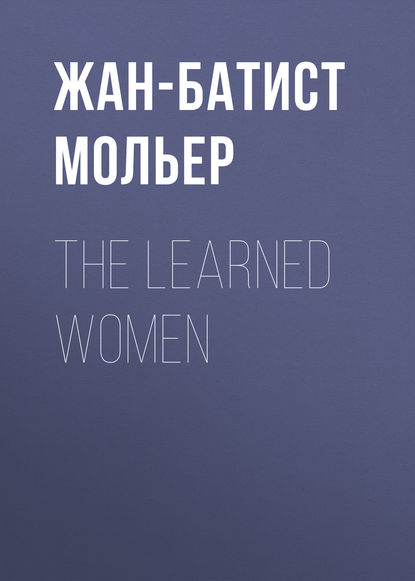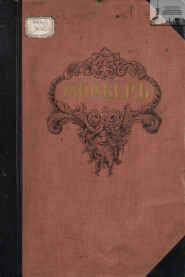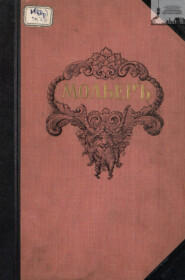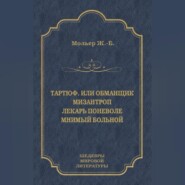По всем вопросам обращайтесь на: info@litportal.ru
(©) 2003-2025.
✖
The Learned Women
Год написания книги
2017
Настройки чтения
Размер шрифта
Высота строк
Поля
BEL. It is a delicious repast offered to my ears.
PHI. Do not let us languish under such pressing desires.
ARM. Lose no time.
BEL. Begin quickly and hasten our pleasure.
PHI. Offer your epigram to our impatience.
TRI. (to PHILAMINTE). Alas! it is but a new-born child, Madam, but its fate ought truly to touch your heart, for it was in your court-yard that I brought it forth, but a moment since.
PHI. To make it dear to me, it is sufficient for me to know its father.
TRI. Your approbation may serve it as a mother.
BEL. What wit he has!
SCENE II. – HENRIETTE, PHILAMINTE, ARMANDE, BÉLISE, TRISSOTIN, LÉPINE
PHI. (to HENRIETTE, who is going away). Stop! why do you run away?
HEN. I fear to disturb such sweet intercourse.
PHI. Come nearer, and with both ears share in the delight of hearing wonders.
HEN. I have little understanding for the beauties of authorship, and witty things are not in my line.
PHI. No matter. Besides, I wish afterwards to tell you of a secret which you must learn.
TRI. (to HENRIETTE). Knowledge has nothing that can touch you, and your only care is to charm everybody.
HEN. One as little as the other, and I have no wish…
BEL. Ah! let us think of the new-born babe, I beg of you.
PHI. (to LÉPINE). Now, little page, bring some seats for us to sit down. (LÉPINE slips down.) You senseless boy, how can you fall down after having learnt the laws of equilibrium?
BEL. Do you not perceive, ignorant fellow, the causes of your fall, and that it proceeds from your having deviated from the fixed point which we call the centre of gravity?
LEP. I perceived it, Madam, when I was on the ground.
PHI. (to LÉPINE, who goes out). The awkward clown!
TRI. It is fortunate for him that he is not made of glass.
ARM. Ah! wit is everything!
BEL. It never ceases. (They sit down.)
PHI. Serve us quickly your admirable feast.
TRI. To satisfy, the great hunger which is here shown to me, a dish of eight verses seems but little; and I think that I should do well to join to the epigram, or rather to the madrigal, the ragout of a sonnet which, in the eyes of a princess, was thought to have a certain delicacy in it. It is throughout seasoned with Attic salt, and I think you will find the taste of it tolerably good.
ARM. Ah! I have no doubt of it.
PHI. Let us quickly give audience.
BEL. (interrupting TRISSOTIN each time he is about to read). I feel, beforehand, my heart beating for joy. I love poetry to distraction, particularly when the verses are gallantly turned.
PHI. If we go on speaking he will never be able to read.
TRI. SONN…
BEL. (to HENRIETTE). Be silent, my niece.
ARM. Ah! let him read, I beg.
TRI. SONNET TO THE PRINCESS URANIA ON HER FEVER.[1 - The sonnet is not of Molière's invention, but is to be found in Les Oeuvres galantes en prose et en vers de M. Cotin, Paris, 1663. It is called, Sonnet à Mademoiselle de Longueville, à présent Duchesse de Nemours, sur sa fièvre quarte. As, of necessity, the translation given above is not very literal, I append the original.The die of quoi qu'on die was the regular form in Molière's time, and had nothing archaic about it. This is sufficiently true of "Will she, nill she" (compare Shakespeare's "And, will you, nill you, I will marry you") to excuse its use here.]
Your prudence fast in sleep's repose
Is plunged; if thus superbly kind,
A lodging gorgeously you can find
For the most cruel of your foes —
"Votre prudence est endormie,
De traiter magnifiquement,
Et de loger superbement,
Votre plus cruelle ennemie;
Faites-la sortir quoi qu'on die,
De votre riche appartement,
Où cette ingrate insolemment
Attaque votre belle vie!
Quoi! sans respecter votre rang,
Elle se prend à votre sang,
Et nuit et jour vous fait outrage!
Si vous la conduisez aux bains,
Sans la marchander davantage,
Noyez-la de vos propres mains."
BEL. Ah! what a pretty beginning!
ARM. What a charming turn it has!
PHI. He alone possesses the talent of making easy verses.

















